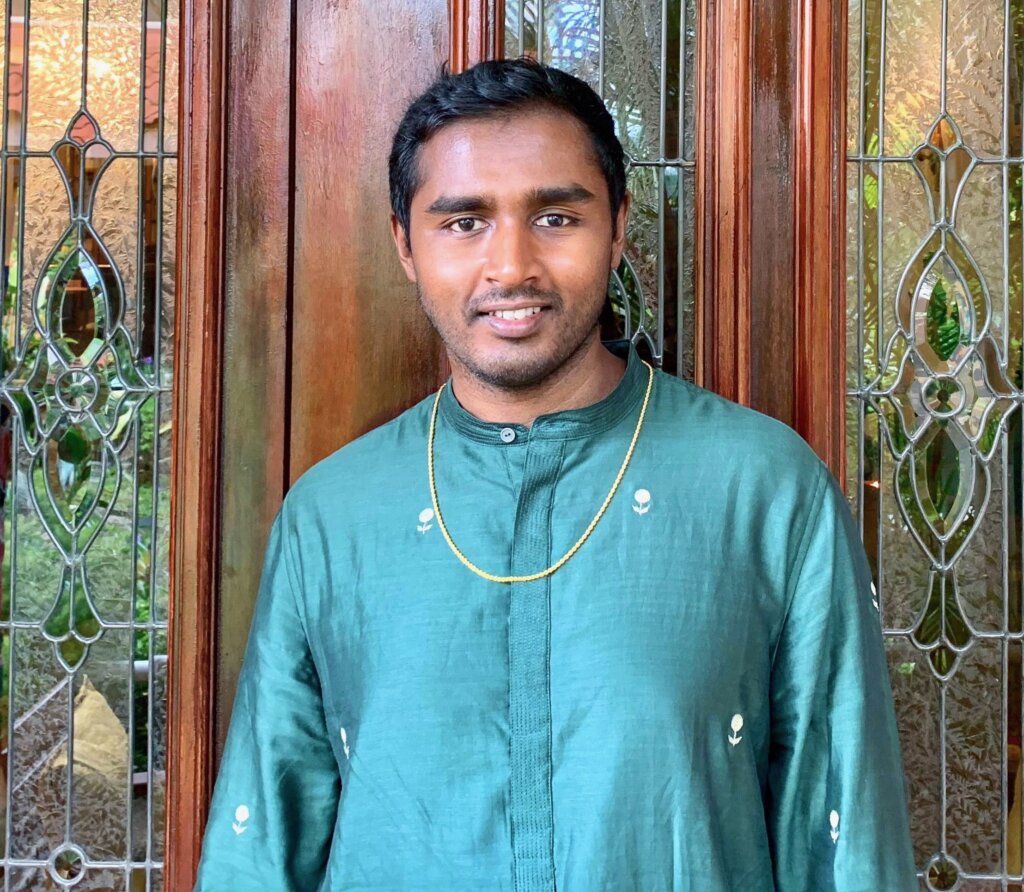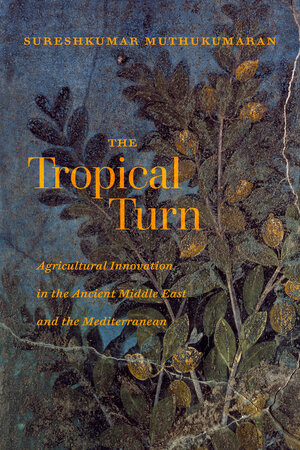
The Tropical Turn chronicles the earliest histories of familiar tropical Asian crops in the ancient Middle East and the Mediterranean, from rice and cotton to citruses and cucumbers. Drawing on archaeological materials and textual sources in over seven ancient languages, The Tropical Turn unravels the breathtaking anthropogenic peregrinations of these familiar crops from their homelands in tropical and subtropical Asia to the Middle East and the Mediterranean, showing the significant impact South Asia had on the ecologies, dietary habits, and cultural identities of peoples across the ancient world. In the process, Sureshkumar Muthukumaran offers a fresh narrative history of human connectivity across Afro-Eurasia from the Bronze Age to the late centuries BCE.
Sureshkumar Muthukumaran is a historian of the ancient world and a first-gen scholar. He is a Lecturer in History at the National University of Singapore and has previously taught at University College London and Yale-NUS College.
What motivated you to write The Tropical Turn?
The Tropical Turn has had a long gestation period, ultimately going back to the research I undertook as an undergraduate and postgraduate student at University College London and the University of Oxford. I had always been interested in uncovering long-distance interactions between states, societies, and cultures in ancient Afro-Eurasia. In the process of engaging with historians and archaeologists who embraced an interdisciplinary approach, it dawned upon me that the history of human mobility and connectivity could be meaningfully chronicled using biological proxies like fauna, flora, commensals, microbial organisms, and attendant diseases. There is a growing body of scholarship which has applied such bio-ecological frameworks to understand the origins and trajectory of our present condition. In that regard, I intended The Tropical Turn to demonstrate how a suite of economically salient crops have shaped our histories, identities, and landscapes, and also to unveil the fascinating stories of their human movers who, not unlike us, desired to resolve the unknown and cross great expanses.
What new insight does your book add to our understanding of the ancient world?
The Tropical Turn offers the most comprehensive and up-to-date account of the anthropogenic dispersal of tropical Asian crops across the ancient Middle East and the Mediterranean. It makes the case for a much longer history of post-Neolithic plant exchanges than is generally considered or accepted between South Asia on one hand and the Middle East and the Mediterranean on the other. The book also situates these crop migrations in the context of long-standing and intensive connections between ancient South Asia, the Middle East, and the Mediterranean. Finally, it explores important questions on the agents of agrarian change whether imperial elites or innovative farmers, the processes of agricultural indigenization, and the ultimate impact of crop migrations on the course of human history.
What was something unexpected or surprising that you learned while working on the book?
The past has the unique capacity to alienate and reconcile, disgust and enthrall, empower and constrain. As all historians can attest to, the process of interacting with historical sources often involves an encounter with the anecdotal. Though seemingly trivial, these materials have the ability to engender a visceral connection with the past. I’m thinking, for example, of the ancient visitors to the temple of Athena in Lindos who, like inconsiderate tourists of present-day, displayed the compulsive need to touch an ancient cotton-embroidered linen corselet which fell apart as a consequence. The peoples of the past, like us, were varied in temperament and instinct. Some were drawn to novelty and change, while others found solace in tradition and routine. I’m reminded, in this context, of the wheat-despising peoples of the South Caspian zone and an Alexandrian Greek physician who feared the fiery qualities of black pepper. While relaying the grand narrative of crop migrations, I retain for the reader these unexpected and surprising encounters with past humans and their all-too-familiar fears, anxieties, desires, and aspirations. One of the most memorable and entertaining moments of the book-writing journey was when I chanced upon a 6th century CE monastic regulation that prohibited Jain nuns from cultivating cucurbits in case they were repurposed as sex toys!
As a first-gen scholar, what advice would you give other first-gen scholars hoping to publish a book?
Publishing a book is always a daunting task and more so when it’s your first. Being a first-gen scholar could add another layer of alienation in this process. My first piece of advice to any budding scholar is to identify a supportive network of individuals who appreciate your work and are able to provide constructive feedback. It’s even better if your support system comprises published authors who can provide reassurance and guidance when it comes to publishing your work. If your work environment does not avail this, then reach out to your old mentors or make new contacts via live or virtual events and social media.
Do intensive market research, namely acquainting yourself with what’s available (especially more recent titles) and how your scholarly contributions complement the existing offerings. Then begin to assemble a publishing prospectus which makes the case for your book. Once you have a clear vision for the book, speak to book editors at the earliest opportunity. This can be an anxiety-inducing undertaking for first-time authors, but it is crucial that you familiarize yourself with the task of selling your book’s premise to a stranger — you’ll be doing that even after the book is published! Finally, make sure that writing remains a joyful process. To be a bit RuPaul-ish about this, if you can’t love your own writing, how in the world are you going expect somebody else to love it?
